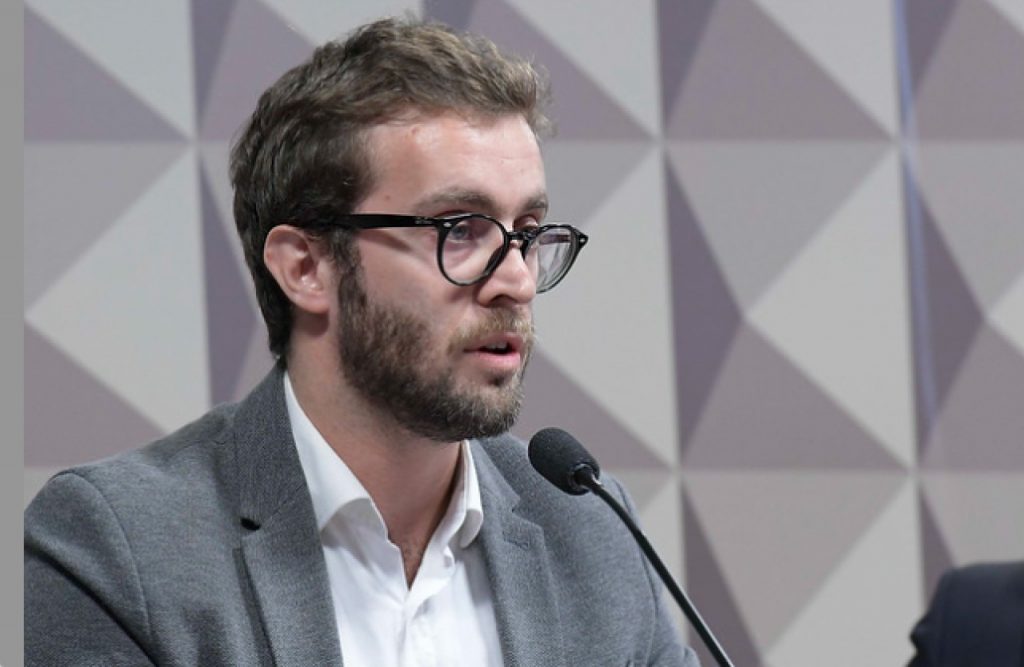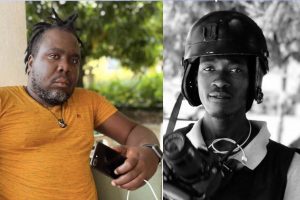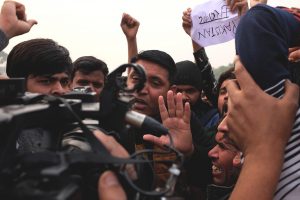In the fourth violent crime against the press in Haiti this year, journalists Tayson Latigue and Frantzsen Charles were shot and cremated by gang members. In 2022, another media worker in the country was shot dead during a protest.
Latigue and Charles (15) were caught reporting on Sunday with five other media professionals in the troubled Cité Soleil neighborhood of Port-au-Prince. Others managed to escape from the criminals.
They were investigating escalating violence in the area, including the murder of a 17-year-old girl, and were allegedly ambushed by two rival gangs, according to the Haitian Association of Independent Journalists. The bodies were not recovered.
Journalists killed in a “catastrophic insecurity”
“The climate of distrust is disastrous for the Haitian press. Emmanuel Colombié, director of the Office of Reporters Without Borders (RSF) for America, said national authorities need to strengthen their mechanisms to protect the profession, particularly independent journalists and the online press, whose information work is so important to the Haitian population.

“Those responsible for the cowardly execution of Tayson Latigue and Frantzsen Charles must be identified and brought to justice as soon as possible.
At the heart of this vicious cycle against the press is the almost complete impunity for the murders and disappearances of journalists in Haiti. The Ariel Henry government must stop this hellish spiral.”
The new crime brings the number of journalists killed or killed in service this year to 61 worldwide, including three in Brazil and 30 in Latin America, according to UNESCO monitoring. Mexico remains the most dangerous country for the press with 17 cases.
A similar crime in January highlighted violence against journalists documenting gangs in Haiti. Journalists Wilguens Louissaint and Amady John Wesley were shot and burned alive.
Also Read | Barbaric crime against journalists in Haiti reveals the risks of journalism in Latin America
Photojournalist two months later Maxihen Lazzare was shot dead when an armed group opened fire on protesters to protest the minimum wage increase.
Crime victims of digital media journalists
Latigue was the founder of digital publication Ti Jenn Jounalis, while Charles was a correspondent for the FS News Haiti website.
According to a local source consulted by RSF, there is some form of discrimination against online media journalists in the country.
“They are not really considered journalists and are accused of exposing themselves to senseless risks for lack of professionalism (…). Some independent journalists are also suspected of being allies of the bandits.”
In a statement, FS News announced the death of its journalist and demanded:ustic
A report on the website describes 27-year-old Frantzsen Charles as a “passionate journalist who believes he will participate in changing the country using his camera and microphone”, but “gangs have extinguished all his dreams”.

The Independent Journalists Association denounced the crime, calling it “a heinous and heinous act” and urged the government to take action to reverse the growing insecurity in the country amid the rise in murders of journalists and kidnappings.
Prime Minister Ariel Henry also posted a message on Twitter stating that she was shocked by the barbaric act.
[1/2]
Some of the newest experiences for journalists: Tayson Latigue and Frantzsen Charles at the Cité-Soleil, in the l’exercice de leur of the profession.
– Dr Ariel Henry (@DrArielHenry) September 13, 2022
Haiti was ranked 87th in the latest Reporters Without Borders Press Freedom Rankings in 2021. The country is ranked along with 180 other countries.
Despite several recent advances in press freedom legislation, Haitian journalists still face a lack of financial resources, lack of institutional support and difficulties in accessing information, according to RSF’s assessment.
In this scenario, the organization points out that it has become more difficult to practice the profession in Haiti in the face of intimidation and violent attacks (increasing incidents in recent years) against journalists by the police and protesters.
In 2019, journalists Pétion Rospide (Radio sans Fin) and Néhémie Joseph (Radio Panic FM and Méga) were also killed in connection with their journalistic work. And since March 14, 2018, photojournalist Vladjimir Legagneur has been missing.
Also Read | Brazil was ranked 110th in the 2022 Press Freedom Index, which marks the ‘new era of polarization’.
source: Noticias

